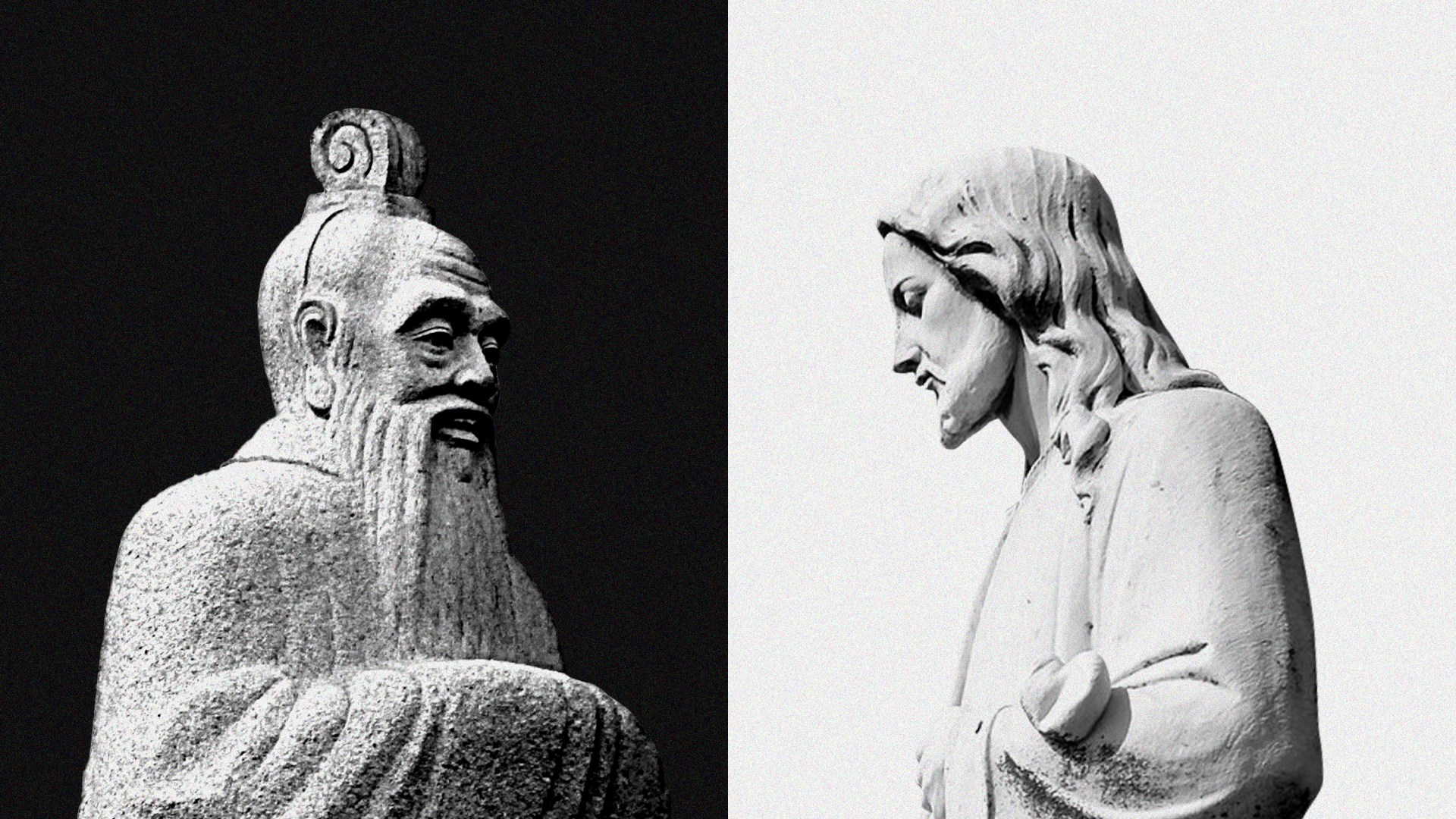Sitting in the front row of a supervisor training in 2016, Stamford Police Sgt. Sean Boeger raised his hand every time the instructor asked who had dealt with a particular experience, including homicides, fatal accidents, and child deaths.
During his nearly 30 years as a police officer, 48-year-old Boeger had helped with body recovery efforts at Ground Zero after 9/11. When 20 children were killed by a lone shooter in 2012 at Sandy Hook Elementary School in Newtown, Connecticut, just 40 miles from Stamford, Boeger volunteered to help the small Newtown police department. He covered midnight shifts as officers took time to recover.
The instructor at the training triggered something in Boeger. Until that class, he had never dwelt much on the effect of witnessing so much trauma. Driving home that evening, he also thought back to another incident, when he responded to a report of a small child falling out of an eighth-story window.
“I felt overwhelmed, kind of panic-stricken,” he recalled of that evening. “I think I was more in shock from the stuff I’d never contemplated and the trauma impact it had on me. Because you don’t stop to think about it.”
So Boeger did something he had never contemplated previously: He sought help from John Revell, a chaplain who had recently been spending time with his department.
“I don’t know what’s going on with me, but I feel like I need to talk to you,” Boeger recalls telling Revell, whom he calls “the Rev.” Revell invited him over, interrupting his family dinnertime, and the two spent an hour or so talking. It opened the door to a longer-term relationship, and an eventual appreciation for the Rev’s consistent presence around the department.
Given the increased stress police have been experiencing around the country, chaplains are needed more than ever to aid officers in their work. They’re serving police departments, not just to show up for departmental ceremonies and funerals but to build relationships and provide counsel for the traumatic incidents police so often face.
In the wake of the death of George Floyd in 2020, rising racial tensions and calls for reform have increased the pressure surrounding law enforcement behavior and performance in the past four years. A Police Executive Research Forum survey found that from 2020 to 2021, police departments nationwide saw a 45 percent increase in the retirement rate and a nearly 20 percent increase in resignations compared to the previous year.
Due to repeated exposure to high-stress and even life-threatening incidents, US police officers in particular have high rates of depression, suicide (and suicide ideation), alcohol use, divorce, and domestic violence, according to a 2023 study published in the Journal of Police and Criminal Psychology. More officers reportedly die of suicide than any other cause, including by firearms or traffic-related accidents.
But much research, including one 2023 study, suggests that access to chaplains benefits police officers’ mental health and that spirituality contributes to resilience in the face of PTSD symptoms.
In earlier decades, most chaplains were local pastors. But in recent years, there has been a significant increase in the use of chaplains specifically trained for police or with law enforcement background, in both large and small agencies across the United States and in numerous other countries.
One of the largest networks, The International Conference of Police Chaplains, represents nearly 2,500 law enforcement chaplains across 15 countries. The North American Mission Board, a Southern Baptist organization, sponsors more than 500 public safety and first responder chaplains.
While Boeger, like many officers, doesn’t consider himself particularly religious, his experience with the Rev and the local chaplaincy program has convinced him of chaplaincy’s value. Meeting with the Rev offered much-needed outside support—just to have someone listen to him and help him not feel alone, he said.
“It’s not like [the Rev] has magical powers or a special technique, it’s having someone who understands,” Boeger said. “Most people want to talk about [their trauma] and express it, they don’t always realize they just need to talk about it and have someone who’s nonjudgmental to listen to them. It’s kind of simplistic, but it’s not an easy job.”
Revell doesn’t see his role as a magical solution either. It’s about building relationships. “In those kinds of situations, mostly what I do is listen,” he said. “I ask questions and give [officers] a chance to unburden themselves.”
In some jurisdictions, police chaplains are hired for ceremonial reasons or to respond to major crisis events such as a mass casualty event. But Revell and his team follow what they call “deployment chaplaincy,” which imitates military chaplaincy by sending ministers to domestic frontlines. The Christian idea behind this, Revell says, is incarnational ministry.
Revell, 68, runs Life Line Chaplaincy and is welcomed as an official chaplain for four Connecticut departments, including the state department, and as an unofficial on-call chaplain for several others.
In these roles, law enforcement chaplains don’t only show up after an officer dies in the line of duty or to support officers who have responded to grisly scenes. They also attend to officers’ personal lives: the birth of a stillborn, the death of a parent, ongoing support of a spouse, and, sometimes, speaking at an officer’s funeral.
“Especially with police officers, you can’t just pick a random person and unload all that stuff,” Boeger said. “When you open up to someone, you’re placing a burden on [them].”
For Stamford Police Lt. Doug Deiso, a chaplain like the Rev offers a comforting spiritual aspect to their work. “People in law enforcement are type A personalities and think they can deal with issues on their own,” Deiso said. “But it’s not always serious or stern with him. You can give him a hug. And when he comes around and sees I’m busy, he doesn’t try to box me in a corner.”
Certainly, a chaplain’s role also involves aiding officers in their high-stress field. Revell, for example, maintains a presence through officer “ride-alongs” in their vehicle, informal breakfast meetings, and showing up regularly at their department headquarters. He also responds to emergency incidents to care for officers when a police chief requests it.
“There’s a long-term career buildup of trauma and stress as a first responder,” Boeger said. “If you work in a busy area, you’re going to build up microtraumas over the years.”
While chaplaincy is a strong resource for police agencies, it’s not the only factor for helping officers cope. Now, police academies are teaching officers more about how to respond well to the job stressors and to cope better. But two decades ago, that was not available, and the police culture is still shifting. Expressing feelings is seen as a sign of weakness, multiple officers said. Female officers especially feel the pressure to be perceived as strong and unemotional.
Law enforcement agencies have always addressed physical health, but in the last few years they have increasingly addressed mental health and trauma, said Connecticut state trooper Rodney Valdes, a peer support and chaplaincy programs coordinator with the state.
“We are made of mind, body, and spirit/soul,” Valdes said. “We’re attending body and mind but often neglecting the third—the spirit. How do we introduce spirituality to a police culture that is very anti-[religion]?”
This injury to the spirit after participating in or witnessing an event that violates the conscience—such as cruel behavior or a crime—is now known in chaplaincy circles as moral injury. It can result in deep shame, guilt, or even despair. Chaplains have a unique role to offer in addressing this wound in ways a medical doctor or therapist might not be able to.
Police departments do not always welcome chaplains. Even with increasing awareness around emotional support, it’s hard to gain trust and for law enforcement personnel to see the point in receiving spiritual or holistic care. Revell spent years with multiple consecutive police chiefs, gaining trust for himself and his work by showing up and spending time at the departments.
Now, in addition to chaplaincy, complementary resources like peer-to-peer support and employee assistance programs offer counseling. This spring, Revell organized an inaugural first-responder wellness conference for nearly 300 participants.
Revell and many others see their spiritual leadership as merely a humble obedience to the biblical command to “carry each other’s burdens” (Gal. 6:2).
“They’re forced to face all of this darkness. It’s easy to be overwhelmed with all of this darkness,” Revell said. “My goal is to be a source of light for them. The whole goal is to see the light of Christ tangibly in my ability to walk with them.”
It is not only Revell’s endurance that makes an impact, Deiso added, but his open-door policy—and his wife’s chili and cookies.
For Boeger and Deiso, the chaplain’s vocation of presence is sustenance enough.
“The biggest thing for me is that [the Rev] stood next to me when we’ve had people lose their lives,” Deiso said. “He’s stood next to me in the rain, in the cold, and didn’t at one point complain about it. He mourned for us and with us. I’ve seen him stand in five-degree weather during funerals. He did that for many hours. That’s powerful.”
Kara Bettis Carvalho is ideas editor at Christianity Today. This article was supported by a grant from the Chaplaincy Innovation Lab at Brandeis University in partnership with Templeton Religion Trust.











































